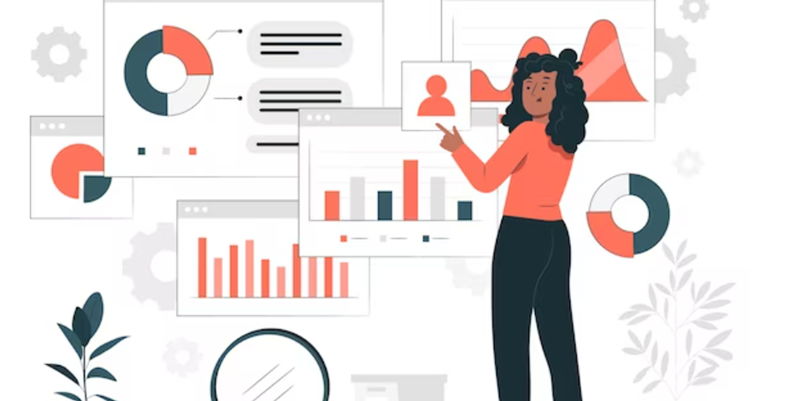In today’s competitive business landscape, organizations are increasingly recognizing the pivotal role of their Talent Acquisition (TA) teams. Not only are these teams vital for successful recruitment, but they also play a significant part in driving broader company initiatives. Two areas where TA can make a substantial impact are owning people analytics on an operational level and leading the charge for Diversity, Equity, and Inclusion (DE&I). Let’s delve deeper into how TA teams can leverage people analytics to improve recruitment strategies and foster a more diverse and inclusive workforce.
IThe Impact of TA in People Analytics
The potential impact of people analytics on recruitment success cannot be overstated. By taking ownership of people analytics, TA teams gain access to invaluable data-driven insights. These insights can be utilized to optimize talent pipelines, enhance recruitment strategies, and support broader HR initiatives. TA teams become proactive strategists, armed with actionable intelligence to drive meaningful changes within the organization.
Leveraging People Analytics for Recruitment Success
Talent Acquisition teams are tasked with finding the right candidates for the right roles. People analytics can help them discern which sourcing channels yield the most suitable and successful candidates. By leveraging this data, TA teams can allocate resources effectively, focusing efforts on channels that consistently yield the best results.
People analytics allows talent acquisition teams to pinpoint bottlenecks in the hiring process, such as lengthy interview cycles, redundant assessments, or poor communication. Armed with this knowledge, they can streamline the process, reduce time-to-hire, and improve the overall candidate experience.
Through people analytics, TA teams can refine their recruitment efforts by analyzing historical data. This data can provide invaluable insights into the success rates of different recruitment strategies, allowing teams to make data-driven decisions and refine their approach for better results.
Anticipating Future Hiring Needs and Ensuring Agility
By analyzing historical data, talent acquisition teams can identify hiring patterns, determine seasonality, and anticipate future workforce needs. This proactive approach allows organizations to plan ahead, ensuring they have the right talent in place to meet demand.
People analytics empowers TA teams to stay agile and adapt to shifting market conditions. By leveraging data on job market trends, skills gaps, and industry insights, organizations can align their talent acquisition strategies with market demands, securing a competitive advantage.
Enhancing Candidate Experience through People Analytics
People analytics can offer invaluable insights into the candidate experience. TA teams can analyze candidate feedback, engagement data, and application journey data to identify pain points, bottlenecks, and areas for improvement. By addressing these issues, TA teams can enhance the overall candidate experience, attracting higher quality applicants.
A positive candidate experience significantly impacts an organization’s employer brand. By utilizing people analytics, Talent Acquisition (TA) teams can identify areas for improvement, refine employer branding efforts, and create a positive perception in the eyes of prospective candidates. This, in turn, attracts high-quality applicants who align with the organization’s values and goals.
The Role of TA in Diversity, Equity, and Inclusion (DE&I)
Diversity, Equity, and Inclusion are not mere buzzwords; they are integral to a company’s success and reputation. TA teams have a significant role to play in driving DE&I initiatives, as they are responsible for identifying and hiring talent that represents a diverse range of backgrounds and perspectives.
By using people analytics, TA teams can identify areas where bias may exist in the hiring process. They can create and implement strategies to proactively address these biases, ensuring fair and inclusive practices. People analytics also enables TA teams to measure the success of DE&I initiatives and track progress over time.
Strategies for TA in Driving DE&I
People analytics equips TA teams with the tools needed to identify bias in the hiring process. By analyzing data on candidate selection, promotion rates, and employee outcomes, TA teams can pinpoint areas where diversity and inclusion may be lacking and take appropriate action.
By leveraging people analytics, talent acquisition (TA) teams can identify and analyze data on applicant sourcing channels. They can then create strategies to attract candidates from underrepresented backgrounds. Tailoring recruitment efforts, revising language in job postings, and building partnerships with diverse communities are just a few examples of initiatives that can be based on data-driven insights.
In today’s fast-paced and constantly evolving business world, training TA teams to take ownership of people analytics and drive organizations’ DE&I vision is crucial. The impact of people analytics on recruitment success and fostering a diverse and inclusive workforce cannot be underestimated. By leveraging data-driven insights, TA teams can optimize recruitment strategies, improve candidate experience, and ensure the success and reputation of the organization. Ultimately, these efforts enable businesses to achieve industry standards and thrive in a competitive landscape.

